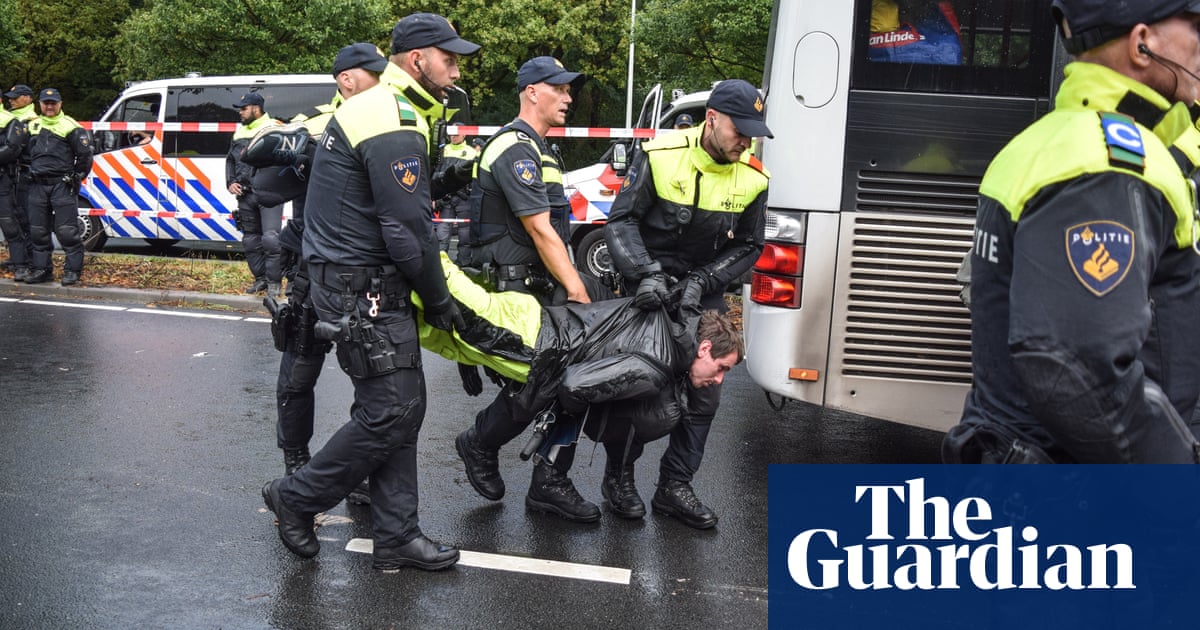The UK has led the way in the crackdown, experts say, with judges recently refusing an appeal against multi-year sentences for climate activists who blocked a motorway bridge in east London. The three-year jail terms for Marcus Decker and Morgan Trowland earlier this year are thought to be the longest handed out by a British judge for non-violent protest.
Michel Forst, the UN rapporteur on environmental defenders since June last year, described the situation in the UK as “terrifying”. He added that other countries were “looking at the UK examples with a view to passing similar laws in their own countries, which will have a devastating effect for Europe”.
He added: “I’m sure that there is European cooperation among the police forces against these kinds of activities. My concern is that when [governments] are calling these people eco-terrorists, or are using new forms of vilifications and defamation … it has a huge impact on how the population may perceive them and the cause for which these people are fighting. It is a huge concern for me.”



these are hardly recruitment tools. Nonviolent protests have been targeting lignite mines long before and had more supporters than people glueing themselves to the street.
It is the other way around in terms of “radicalization” although thos term is hardly fitting as demanding the government to uphold its own laws and international commitments can hardly be radical. Meanwhile the governments radicalized extremely, both in their language and now in their often criminal infringement of the protestors rights.